Protesters in Minneapolis decry police shooting of Amir Locke, no-knock warrants

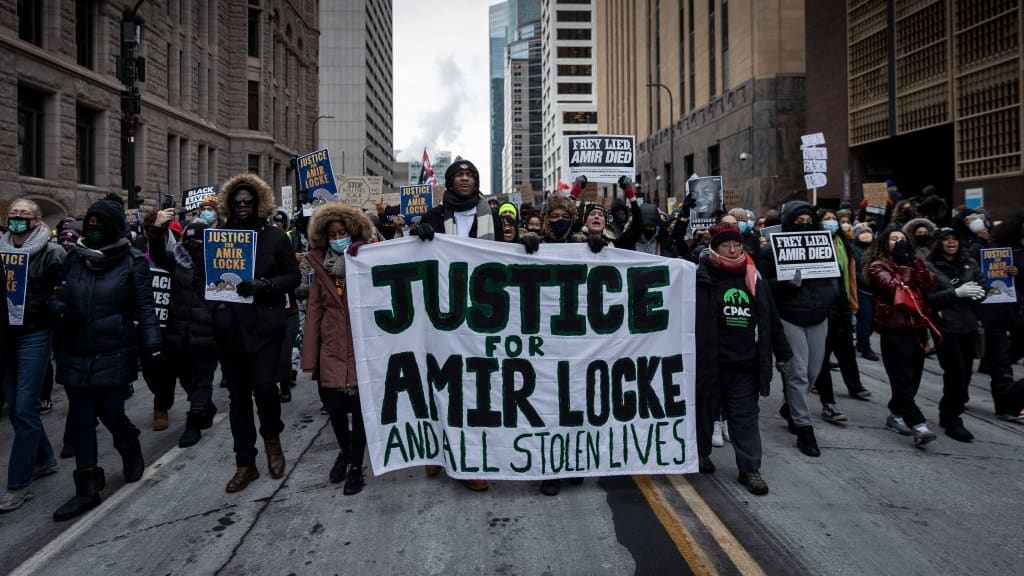
A free daily email with the biggest news stories of the day – and the best features from TheWeek.com
You are now subscribed
Your newsletter sign-up was successful
Over the weekend, hundreds of protesters walked and drove through the streets of Minneapolis, calling for justice in the fatal shooting of Amir Locke, a 22-year-old Black man.
Locke was killed Wednesday inside a downtown Minneapolis apartment while police officers carried out a no-knock search warrant in connection with a homicide investigation out of neighboring St. Paul. Locke was not named in the warrant, and Minneapolis police were criticized for initially referring to him as a "suspect," MPR News reports.
Body cam footage released by police after the shooting shows several officers yelling, "Police! Search warrant!" as they rush into the apartment. It appears that Locke was sleeping on a couch when they came inside, and was waking up as officers came closer to him. Locke is wrapped up in a blanket, and a gun can be seen in his hand. One of the officers, Mark Hanneman, then fired three shots, hitting Locke.
The Week
Escape your echo chamber. Get the facts behind the news, plus analysis from multiple perspectives.

Sign up for The Week's Free Newsletters
From our morning news briefing to a weekly Good News Newsletter, get the best of The Week delivered directly to your inbox.
From our morning news briefing to a weekly Good News Newsletter, get the best of The Week delivered directly to your inbox.
In a no-knock warrant, police are authorized to enter a private property without announcing their presence. In 2020, Minneapolis restricted the practice, but they were still used in certain cases, the Star Tribune reports. Following Locke's death, Minneapolis Mayor Jacob Frey said no-knock warrants would be suspended in the city. Critics of no-knock warrants say it is easy for a civilian to become disoriented during the chaos, and reach for a weapon.
Locke, who did not have a criminal record, was a delivery driver for DoorDash, and his family said because of an increase in carjackings, he decided to legally purchase a gun for protection. He was planning on moving to Texas in about a week to pursue a career in music.
A free daily email with the biggest news stories of the day – and the best features from TheWeek.com
Catherine Garcia has worked as a senior writer at The Week since 2014. Her writing and reporting have appeared in Entertainment Weekly, The New York Times, Wirecutter, NBC News and "The Book of Jezebel," among others. She's a graduate of the University of Redlands and the Columbia University Graduate School of Journalism.
-
 The ‘ravenous’ demand for Cornish minerals
The ‘ravenous’ demand for Cornish mineralsUnder the Radar Growing need for critical minerals to power tech has intensified ‘appetite’ for lithium, which could be a ‘huge boon’ for local economy
-
 Why are election experts taking Trump’s midterm threats seriously?
Why are election experts taking Trump’s midterm threats seriously?IN THE SPOTLIGHT As the president muses about polling place deployments and a centralized electoral system aimed at one-party control, lawmakers are taking this administration at its word
-
 ‘Restaurateurs have become millionaires’
‘Restaurateurs have become millionaires’Instant Opinion Opinion, comment and editorials of the day
-
 Maxwell pleads 5th, offers Epstein answers for pardon
Maxwell pleads 5th, offers Epstein answers for pardonSpeed Read She offered to talk only if she first received a pardon from President Donald Trump
-
 Hong Kong jails democracy advocate Jimmy Lai
Hong Kong jails democracy advocate Jimmy LaiSpeed Read The former media tycoon was sentenced to 20 years in prison
-
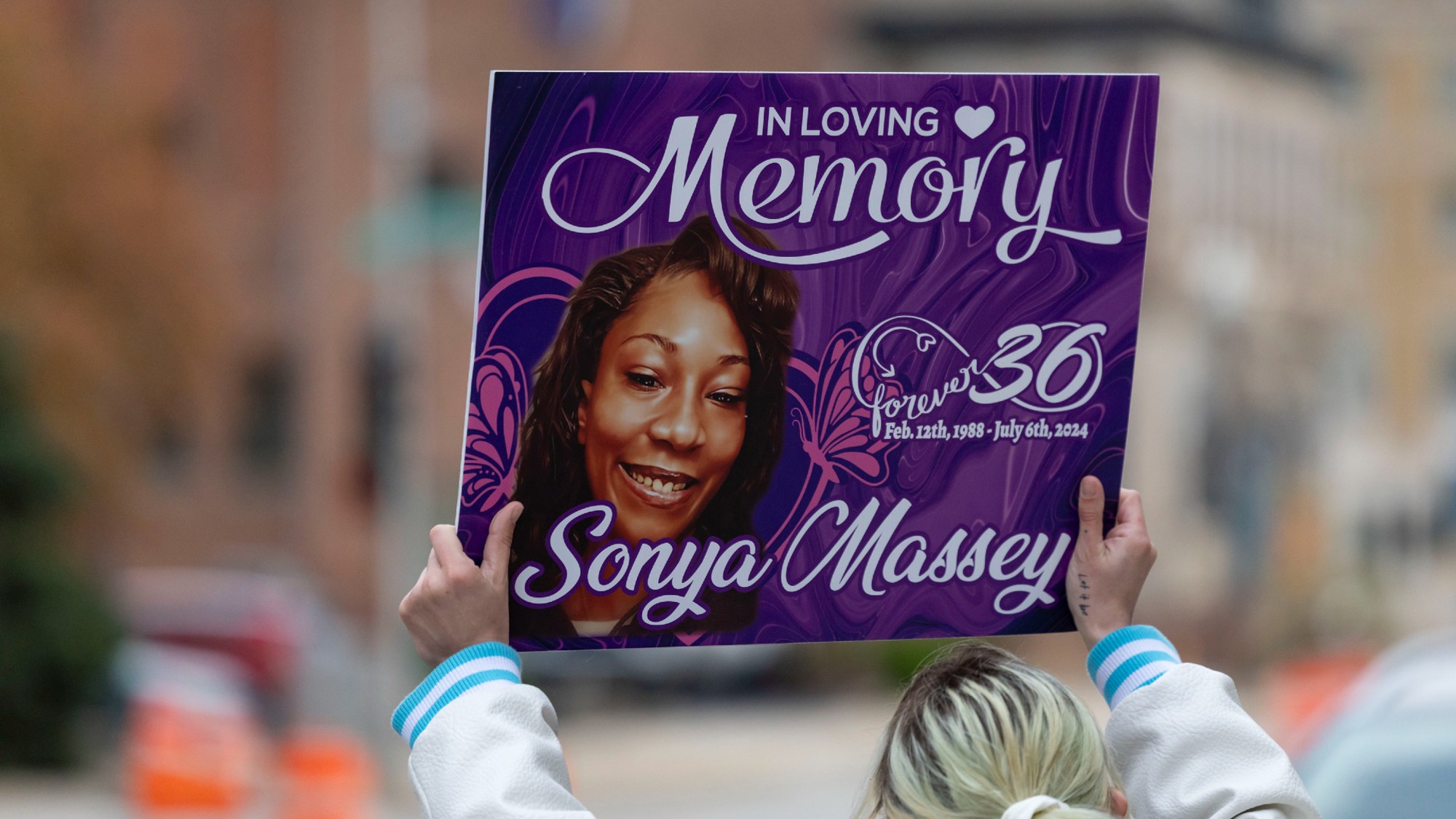 Ex-Illinois deputy gets 20 years for Massey murder
Ex-Illinois deputy gets 20 years for Massey murderSpeed Read Sean Grayson was sentenced for the 2024 killing of Sonya Massey
-
 Death in Minneapolis: a shooting dividing the US
Death in Minneapolis: a shooting dividing the USIn the Spotlight Federal response to Renee Good’s shooting suggest priority is ‘vilifying Trump’s perceived enemies rather than informing the public’
-
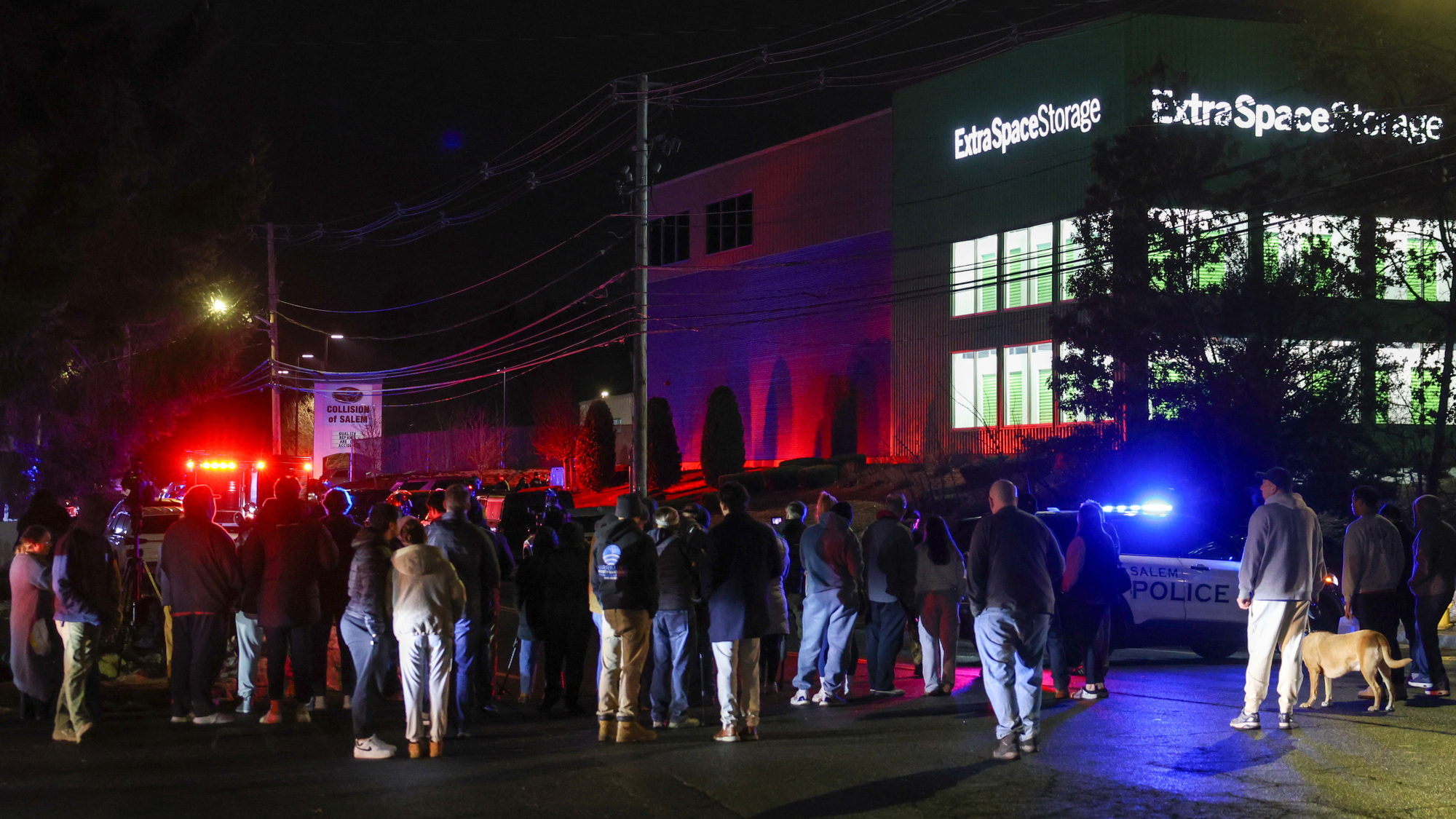 Sole suspect in Brown, MIT shootings found dead
Sole suspect in Brown, MIT shootings found deadSpeed Read The mass shooting suspect, a former Brown grad student, died of self-inflicted gunshot wounds
-
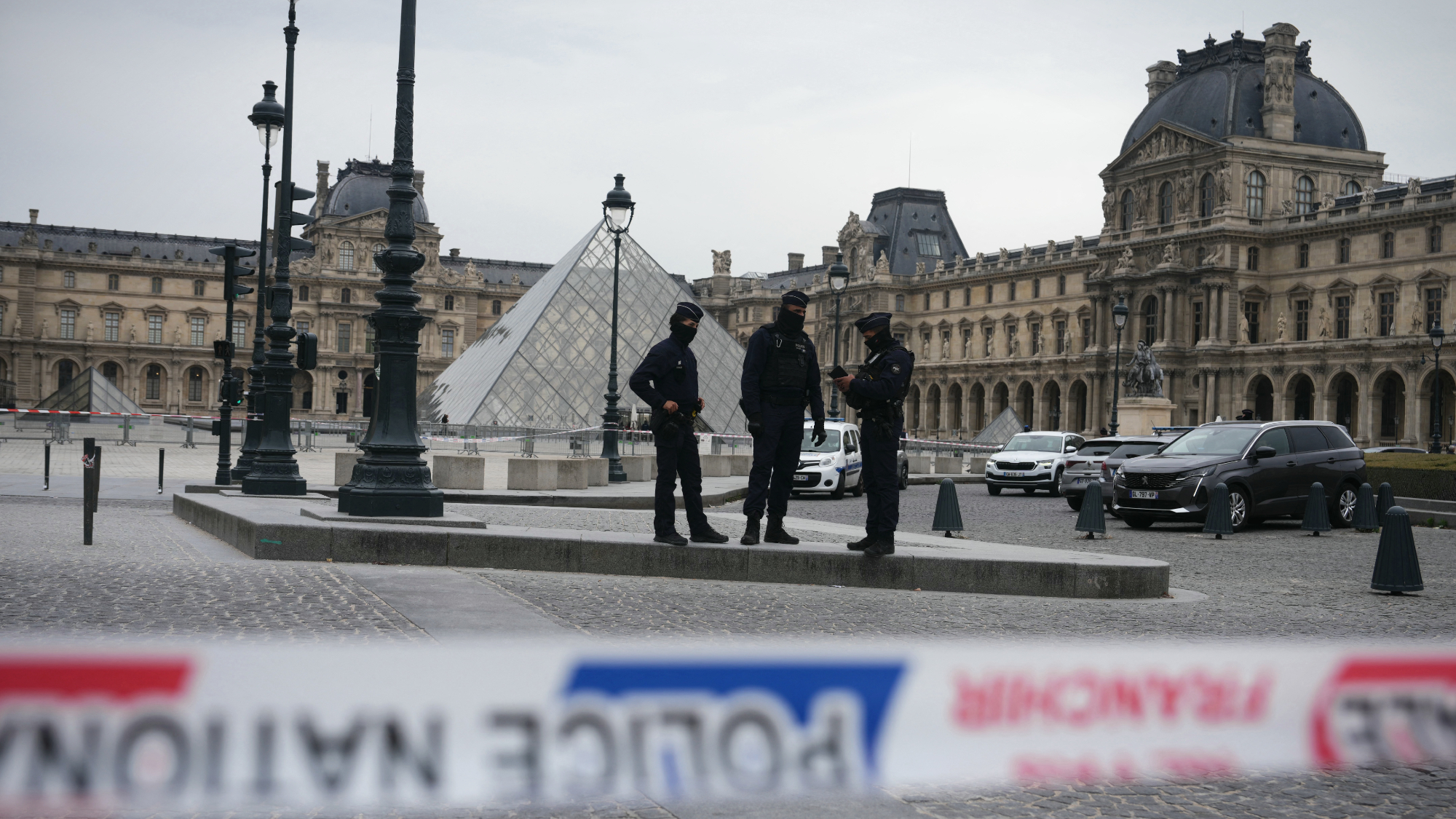 France makes first arrests in Louvre jewels heist
France makes first arrests in Louvre jewels heistSpeed Read Two suspects were arrested in connection with the daytime theft of royal jewels from the museum
-
 Trump pardons crypto titan who enriched family
Trump pardons crypto titan who enriched familySpeed Read Binance founder Changpeng Zhao pleaded guilty in 2023 to enabling money laundering while CEO of the cryptocurrency exchange
-
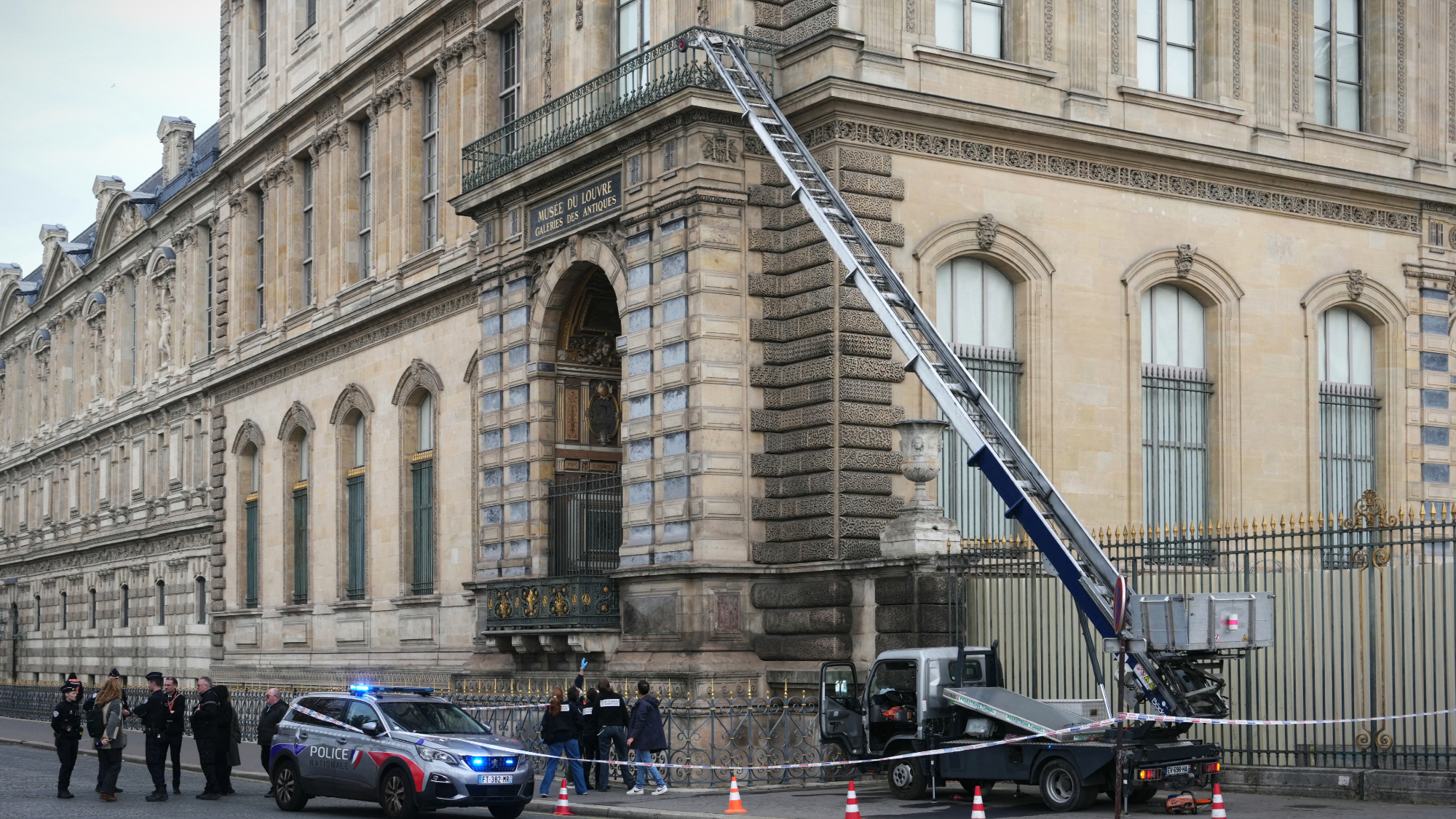 Thieves nab French crown jewels from Louvre
Thieves nab French crown jewels from LouvreSpeed Read A gang of thieves stole 19th century royal jewels from the Paris museum’s Galerie d’Apollon
